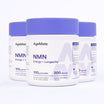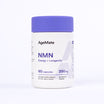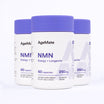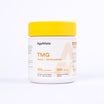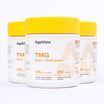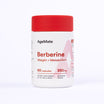Key Takeaways:
Imagine your genes as a library, where the books’ content stays the same, but the librarian decides which to highlight or hide. Epigenetics is like this librarian, influenced by lifestyle, environment, and biological factors.
As we age, these influences change the librarian’s choices, impacting our health and longevity. Understanding this dynamic can unlock insights into the ageing process and help us shape a healthier future.
Unveiling the Science of Epigenetics
Epigenetics involves changes in gene function that do not alter the DNA sequence itself. These modifications, such as DNA methylation, histone changes, and non-coding RNA interactions, regulate gene expression and are crucial for various biological processes, including ageing. Next, we’ll delve into how these modifications change as we age and their impact on our bodies (R).
Epigenetic Modifications Throughout the Ageing Process
As we age, our epigenetic landscape undergoes significant transformations. These changes impact how genes are expressed, contributing to the physical and functional decline associated with ageing. Understanding these modifications is key to deciphering the complex biology of ageing. Let’s start by exploring one of the most studied modifications: DNA methylation (R).
DNA Methylation
DNA methylation is one of the most studied epigenetic modifications. It involves the addition of methyl groups to DNA, typically leading to gene repression. Age-related changes in DNA methylation patterns can influence gene activity, impacting health and longevity. Research has shown that certain genes become hypermethylated, leading to their silencing, while others become hypomethylated, resulting in genomic instability and increased cancer risk (R).
Histone Modifications
Histones, the proteins around which DNA is wrapped, undergo modifications that can either activate or repress gene transcription. These changes play a critical role in the ageing process, affecting gene expression patterns and cellular function. Histone acetylation generally promotes gene expression, but with age, acetylation levels often decrease, leading to a more repressive chromatin state. Conversely, dysregulated histone methylation can affect genes involved in cell cycle regulation and DNA repair. To further understand epigenetics, let’s examine the role of non-coding RNAs (R).
Non-coding RNAs
Non-coding RNAs do not code for proteins but are essential regulators of gene expression. Changes in the expression of these RNAs with age can disrupt their regulatory roles, contributing to age-related decline and diseases. For instance, certain microRNAs that regulate inflammation and cellular senescence are upregulated in aged tissues, exacerbating inflammatory and degenerative processes. Let’s now explore the factors driving these epigenetic changes.

Factors Driving Epigenetic Deregulation in Ageing
Various factors contribute to the epigenetic changes observed with ageing. Environmental influences, lifestyle choices, and cellular stressors all play roles in altering the epigenetic landscape, driving the processes that lead to ageing and age-related diseases. We will start by looking at how environmental factors influence epigenetics (R).
Environmental Influences
External factors such as diet, pollution, and lifestyle habits like smoking and exercise can induce epigenetic changes. These environmental influences accumulate over time, impacting gene expression and contributing to the ageing process. For example, exposure to pollutants can lead to DNA methylation changes that affect respiratory and cardiovascular health. Next, we’ll explore how cellular stressors affect epigenetic regulation (R).
Cellular Stressors
Internal stressors, including oxidative stress and chronic inflammation, significantly impact epigenetic regulation. These stressors alter DNA methylation and histone modification patterns, promoting cellular aging and dysfunction. Oxidative stress, characterised by excessive free radicals, can damage DNA and proteins, leading to aberrant epigenetic modifications. Following this, we’ll discuss the impact of cellular senescence on epigenetic changes (R).
Cellular Senescence
The phenomenon of cellular senescence, where cells permanently cease to divide, is closely linked to epigenetic changes. Senescent cells exhibit altered epigenetic patterns that reinforce ageing and promote a pro-inflammatory state. These cells accumulate in tissues over time, contributing to age-related pathologies and reduced regenerative capacity. Understanding these changes sets the stage for exploring epigenetic clocks and their significance (R).
The Concept of Epigenetic Clocks
Epigenetic clocks have emerged as powerful tools to measure biological age. By analysing specific epigenetic markers, these clocks provide insights into an individual’s biological ageing process, which can differ from chronological age, offering predictions about health and lifespan. Let’s dive into two of the most renowned epigenetic clocks: the Horvath and Hannum clocks (R).
Horvath Clock
The Horvath clock, developed by Steve Horvath, uses DNA methylation patterns at specific sites to estimate biological age. This tool has revolutionised our understanding of ageing, providing a precise measure of how our bodies age at the molecular level. Studies using the Horvath clock have shown that lifestyle factors, such as diet and exercise, can influence biological age. We will now compare it to another significant clock: the Hannum clock (R).
Hannum Clock
Another significant epigenetic clock is the Hannum clock, which also relies on DNA methylation patterns. This clock offers a different perspective by focusing on other CpG sites, further enhancing our ability to measure biological ageing and assess health risks. Research using the Hannum clock has provided insights into the impact of various environmental and genetic factors on ageing. Now, let’s examine the changes in epigenetic modifications during ageing (R).
Changes in Epigenetic Modifications During Ageing
Ageing induces various epigenetic changes that impact gene expression and cellular function. These alterations, including DNA hypomethylation, hypermethylation, and shifts in histone modifications and non-coding RNA expression, play critical roles in the ageing process.
Hypomethylation and Hypermethylation
Age-related hypomethylation and hypermethylation of specific genome regions can lead to genomic instability and increased disease risk. Understanding these changes helps us grasp how ageing affects cellular integrity and function. Hypomethylation of repetitive elements can lead to genomic instability, while hypermethylation of promoter regions of tumour suppressor genes can increase cancer risk. Next, we’ll explore alterations in histone modifications (R).
Alterations in Histone Modifications
Histone modifications undergo significant changes with age, influencing gene expression and cellular processes. Reduced histone acetylation and dysregulated histone methylation contribute to the ageing phenotype and related diseases. Research has shown that age-related changes in histone modifications can affect genes involved in DNA repair and cell cycle regulation, leading to impaired cellular function (R).
Non-coding RNA Regulation
The regulation of non-coding RNAs changes as we age, affecting their ability to control gene expression. These alterations can disrupt cellular homeostasis, leading to age-related decline and disease progression. For instance, changes in microRNA expression can influence inflammatory pathways and cellular senescence, contributing to chronic inflammation and tissue degeneration. Let’s now explore the latest research in epigenetics and ageing (R).
Research in Epigenetics and Ageing
Research in epigenetics and ageing is advancing rapidly, with notable contributions from experts like David Sinclair and Thomas Rando. Their groundbreaking work is uncovering the mechanisms of epigenetic changes in ageing and exploring interventions to promote healthy ageing and longevity. We will start by looking at David Sinclair’s research.
David Sinclair’s Research: Sirtuins and NAD+
David Sinclair’s research focuses on the role of sirtuins and NAD+ in ageing. His work has demonstrated that activating sirtuins and boosting NAD+ levels can extend lifespan and improve healthspan, offering promising strategies for age-related interventions. Sinclair’s studies have shown that NAD+ supplementation can reverse age-related epigenetic changes, enhancing DNA repair and mitochondrial function (R).
Thomas Rando’s Research: Epigenetic Regulation of Stem Cells
Thomas Rando’s pioneering studies on muscle regeneration and stem cell function highlight the role of epigenetics in these processes. By manipulating epigenetic changes, Rando’s research aims to enhance regenerative capacity and improve health outcomes in aged individuals. His work on the epigenetic regulation of muscle stem cells has revealed potential strategies for promoting muscle repair and preventing age-related muscle loss (R).
Elizabeth Blackburn’s Telomere Research
Elizabeth Blackburn, awarded the Nobel Prize for her work on telomeres and telomerase, has significantly contributed to our understanding of ageing. Telomeres, the protective caps at the ends of chromosomes, shorten with age. Blackburn’s research has shown that lifestyle factors can influence telomere length and thus impact ageing and healthspan. Her work suggests that interventions to maintain telomere length could promote healthy ageing (R).
Manuel Serrano’s Senescence Research
Manuel Serrano has conducted influential research on cellular senescence (the state where cells permanently cease to divide). His studies have demonstrated that senescent cells contribute to ageing and age-related diseases. Serrano’s work on clearing senescent cells, known as senolytics, has opened new avenues for promoting healthy ageing by reducing the burden of senescent cells in tissues. As we conclude, let’s reflect on the profound impact of epigenetics on ageing (R).
Conclusion
Epigenetics provides a profound understanding of the ageing process, offering potential pathways for intervention and promoting healthy ageing. By uncovering the intricate mechanisms behind epigenetic modifications and their impact on gene expression, researchers are paving the way for novel therapies that may enhance lifespan and healthspan.
Epigenetics shows how lifestyle choices impact how you age. Our Longevity Blend supports your path towards a healthy lifestyle and provides key nutrients designed for longevity.



